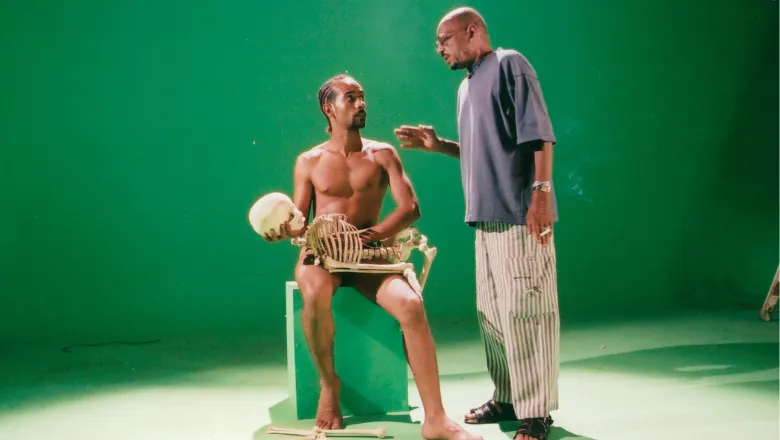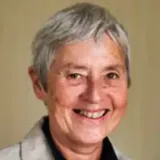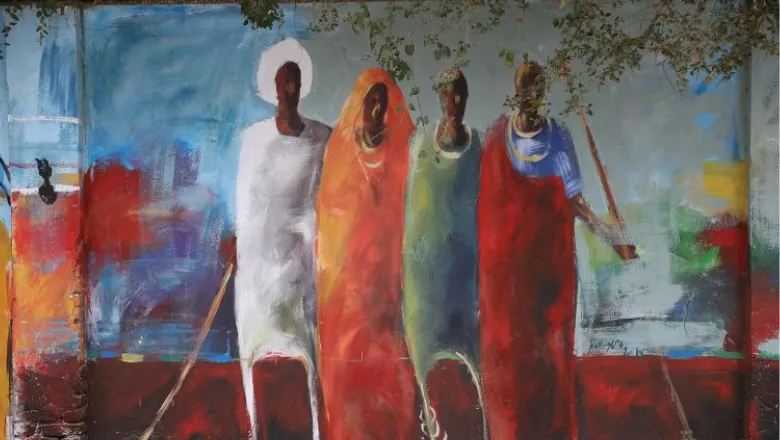King’s Global Cultures Institute (GCI) will hold a forum building on projects, worked on over many years by with partners in Sudan and the UK to preserve and disseminate Sudanese cultural heritage.
This work, and associated cultural materials embodying precious Sudanese memories and histories, are now in peril. On 15 April 2023, tensions between warring factions in Sudan’s military leadership erupted into full-blown military conflict. In a few short weeks, the country has seen the death and injury of hundreds, witnessed gender and ethnic violence against civilian populations, and experienced refugee waves on a mass scale. As a humanitarian crisis unfolds, public institutions too, including essential healthcare facilities, are under threat.
The impact of the conflict extends further. It has encompassed the destruction, burning, theft, and bombing of significant cultural institutions, as well as art, cultural and document collections in private and community archives and libraries. The Centre of Professor Muhammad Omar Bashir in Omdurman, which housed a wealth of research, documents, and archives related to culture, literature, and human sciences, was tragically reduced to ashes within five weeks of the first clashes. The Natural History Museum attached to the University of Khartoum suffered a similar fate, with its archives lost and its living creatures, including rare species, perishing from thirst and hunger after seven weeks of turmoil. The house of the esteemed artist Kamala Ishag, aged 84—recently the subject of a major retrospective at London’s Serpentine Gallery—was engulfed in flames, resulting in the complete destruction of her belongings, and of artistic works that bore witness to the advancement and evolution of the plastic arts in Sudan.
Outside Khartoum, fire has consumed the El Geneina theatre. There is further imminent risk to the University of Khartoum and its extensive library, as well as the College of Fine Arts, the Institute of Afro-Asian Studies, Sudan Radio and TV, containing one of Africa’s largest extant audio-visual collections, and the rare music library, which holds recordings from regions that no longer produce the same music due to displacement or past wars.
Documents and artefacts, and the memories and histories they hold, sustain the pluralist culture and values that are the bedrock of a flourishing civil society. In Sudan, a country already reliant on oral heritage, material historical artefacts are even more precious. Since the early 2010s, two projects at King’s have worked to preserve and recirculate these archival treasures. The Sudan Memory digital humanities project, funded by the British Council and Aliph Foundation, and led by King’s Professor Marilyn Deegan, alongside Project Manager Kate Ashley, has conserved and promoted valuable cultural materials from and about Sudan through digitisation and via an online platform. The project has opened for public access archives and collections that were hitherto largely inaccessible, as well as recording and recirculating valuable cultural records held in personal collections and stories. Since 2018, Sudan Memory has also established digitisation facilities in a range of cultural institutions throughout the country and worked to build capacity by training archive and museum staff as well as local independent collectors and culture practitioners.
Sudan Memory’s aim has been to preserve institutional archives, personal collections and their stories for current and future generations. That aim is shared by the Hussein Shariffe audiovisual archiving project, led jointly by Shariffe’s daughter, the writer and psychotherapist Eiman Hussein, and Erica Carter, Professor of Film Studies at King’s College London.
Both the Sudan Memory and Hussein Shariffe projects have rapidly shifted focus following the outbreak of hostilities in Sudan. The GCI are working to make our digital archives rapidly and fully accessible to Sudanese cultural institutions, communities and individual artists, researchers and creatives working across Sudan and the diaspora. A GCI working group is collaborating with UK-based Sudanese researchers and cultural workers to safeguard our digital collections and bring them back to communities in Sudan and the diaspora.
At the Sudan Crisis forum, partners from Sudan Memory and the Hussein Shariffe project join with journalists, writers, activists, cultural and NGO practitioners, and political commentators, to explore in a public panel and open forum how our own and similar projects can sustain experiences and memories of shared cultures, and provide platforms from which to contest ongoing violence. A welcome from the GCI and Dr Charlotte Joy, Non-Executive Director, Heritage and Culture for the UK, UNESCO, will be followed by a short film from the Sudanese Women’s Museum in Darfur and a round table with invited panellists including Dr Eiman Hussein, writer and psychotherapist, Metanoia Institute and FORWARD Foundation for Women’s Health Research and Development.





